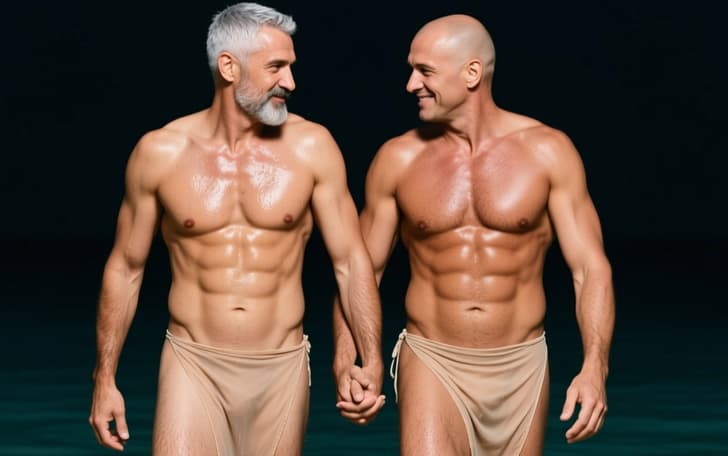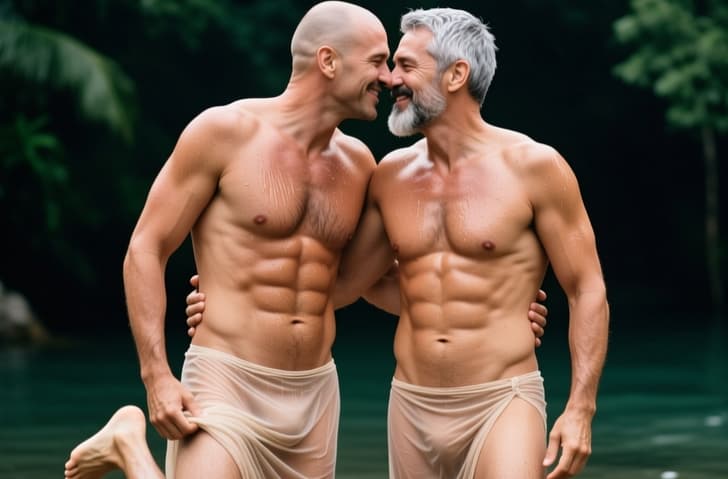You notice a shift in the air when you enter a room that has been closed for a while. A certain scent exists that many people link to grandfatherly figures or aged libraries. Scientists call such a phenomenon 2-nonenal, and it results from the natural breakdown of fatty acids on your skin. You should realize that such a smell is not a sign of laziness or a lack of soap.
The process involves chemical oxidation that occurs more frequently as the body matures. Everyone produces these oils, but the way they react with oxygen changes over the decades. You will likely perceive such a musk as a grassy or waxy aroma that stays stubbornly in the air. Combatting such a scent requires a look at your biology rather than just a longer shower.
You shall find that certain lifestyle choices and successful products will alter your scent profile. Knowledge of the molecular breakdown allows you to address the root cause with precision. Such a transformation in your scent profile is merely a natural phase of your life.
Molecular Origins of the Scent
Fatty acids on your skin serve as the primary source of the aroma you wish to eliminate. Such lipids oxidize when they come into contact with the air throughout the day. You will observe that the concentration of such substances increases as your metabolism shifts. The skin of younger individuals possesses a robust antioxidant layer that prevents such a chemical reaction. Older skin lacks the same level of protection against the surrounding environment.
The resulting molecule, 2-nonenal, has a low threshold for detection by the human nose. You only need a tiny amount of such a substance to fill a small space with its characteristic musk. Most researchers describe the smell as a mix of old wood and damp grass. It stays oily and does not dissolve when you splash plain water on it. Such a trait makes the compound difficult to remove with a quick rinse.
Your body naturally produces over the normal amount of palmitoleic acid as you cross the threshold into middle age. Bacteria on your skin surface do not cause such a particular odor like they do with underarm sweat. Oxygen is the main culprit that transforms stable oils into the pungent nonenal molecule. You shall find that keeping your skin surface cool reduces the speed of such a transformation. Awareness of your changing chemistry is the first step toward a successful solution.
Identify the scent as a waxy or greasy smell that appears on your skin regardless of activity levels.
Rub a clean cloth over your neck and sniff it to see if the oils have begun to oxidize.
Observe how the aroma stays even after you finish a standard workout and shower with regular gel.
The Chemistry of Lipid Oxidation
Oxidation occurs when oxygen molecules interact with the fats sitting on your skin. You should recognize that such a process is identical to how butter turns rancid over time. The double bonds in omega - 7 fatty acids break apart and reform into aldehydes. 2-nonenal is a member of the aldehyde family and carries a very potent aroma. You will notice that such a reaction accelerates in the presence of heat and light.
Antioxidants in your skin naturally prevent such a breakdown from happening too quickly. Younger skin is able to neutralize free radicals before they damage the surface oils. Your supply of these protective molecules decreases as your body ages. Such a decline leaves your skin oils vulnerable to the air around you. You shall see that the rate of nonenal production is closely linked to your internal health.
Environmental factors like UV radiation and air pollution also speed up lipid oxidation. You should realize that spending time in the sun increases the amount of odor you produce. The energy from the sun provides the spark for the chemical reaction to occur. You will perceive a stronger scent after a long day spent outdoors. Protecting your skin from the elements helps keep your scent profile neutral.
Apply a vitamin E serum to your back and chest to provide an extra layer of antioxidant protection.
Stay in the shade during peak hours to reduce the amount of UV - induced oxidation on your skin.
Use an air purifier in your home to remove pollutants that could potentially speed up the chemical breakdown of oils.
3-Methyl-2-Hexenoic Acid and Sebum Production
"3-methyl-2-hexenoic" acid and "sebum production" are linked to each other and can have an impact on body odor.
- Sebum, the oily substance produced by our skin, provides moisture and protection to the skin.
- When sebum interacts with certain bacteria on the skin, it undergoes chemical reactions.
- The chemical reactions produce 3-methyl-2-hexenoic acid, which is known for its strong odor.
Changes in sebum production can affect the availability of the substrate for bacteria to break down. If sebum production decreases, less material for bacteria may act upon, which could impact the amount of 3-methyl-2-hexenoic acid generated.
Sebum Production and Age
Sebaceous glands are the organs responsible for producing the oils that keep your skin moist. You will find that the volume of oil does not necessarily decrease as you get older. The composition of the oil undergoes a shift that favors heavier fatty acids. Such a change results in a thicker, waxy film on the surface of your body. You shall notice that your skin feels different to the touch than it did in your youth.
Palmitoleic acid becomes much more prevalent in your sebum after the age of forty. Such an acid is the direct precursor to the nonenal molecule that causes the odor. You are able to measure such a shift in a laboratory setting with ease. Younger people produce very little of such a substance, which is why they do not carry the same scent. The body undergoes such a transition as part of the natural aging process.
Hormonal signals regulate how much and what type of oil your glands release. You should realize that shifts in testosterone and other hormones influence your scent. Such a biological reality means that hygiene alone is not the answer. You will find that your scent profile evolves just as your hair color or skin texture does. Awareness of such a reality helps you choose the right management tactics.
Touch your forehead and neck to check for a thick, waxy residue that feels heavier than normal oil.
Consult a doctor if you notice a sudden surge in oil production that seems unusual for your age.
Maintain a stable weight to help regulate the hormonal signals that control your sebaceous glands.
Antioxidant Depletion in Maturing Skin
The body utilizes a complex system of nutrients to shield your skin from damage. You shall find that levels of vitamin C and E in the skin drop notably over the decades. Such a loss of protection allows oxygen to react with your sebum more freely. You will observe that the resulting nonenal is a byproduct of such a defensive failure. The body simply has fewer resources to fight off the effects of the air.
Free radicals are unstable molecules that search for electrons to steal from your skin. You should realize that such a process creates a chain reaction of damage. Antioxidants donate an electron to stop the cycle and protect your oils. A lack of these molecules means the oxidation of your fats goes unchecked. You shall perceive a stronger waxy aroma when your antioxidant levels are low.
Topical applications can potentially restore some of the protection that your body loses. You are able to use lotions that contain high concentrations of green tea or vitamin E. Such products act as a secondary barrier against the reactive oxygen in the atmosphere. You will find that consistent use of such creams reduces the amount of nonenal your skin releases. Internal nutrition also supports the health of your skin from the inside out.
Eat more blueberries and other dark fruits that are high in natural antioxidants.
Use a lotion that lists "tocopherol" or "ascorbic acid" high on the ingredient list for maximum protection.
Reduce your intake of sugar because high blood glucose levels can potentially deplete your skin's antioxidant stores.
Why Conventional Soaps Fail
Standard soaps focus on removing dirt and bacteria that are soluble in water. You should realize that 2-nonenal is a waxy lipid that repels water - based cleaners. The molecule bonds tightly to your pores and resists being washed away. You shall find that you still smell like nonenal even after a long shower with regular gel. Such a fact is a source of frustration for many men who value cleanliness.
Surfactants in common soaps are often too weak to break the bond of oxidized oils. You will likely find that scrubbing harder only irritates your skin without removing the scent. Such a reaction causes your body to produce even more oil to soothe the irritation. The cycle of odor production continues despite your best efforts to stay fresh. A different chemical method is required to lift the waxy buildup.
Specialized cleansers are able to dissolve the nonenal molecule at its source. You should look for ingredients that are specifically designed to target oxidized fats. Such products often use fruit acids or botanical tannins to break down the waxy film. You will perceive a notable difference in the clarity and scent of your skin. Regular use of the right product ensures that the odor does not accumulate over time.
Stop using harsh deodorant soaps that dry out your skin and trigger more oil production.
Test a small area of skin with a new cleanser to ensure it does not cause redness or itching.
Lather your skin twice in areas like the back and chest where nonenal buildup is most common.
Dietary Influences on Skin Chemistry
The food you consume directly affects the composition of the oils on your skin surface. You shall find that a diet high in saturated fats increases the raw materials for nonenal. Such fats migrate to your sebaceous glands and appear on your skin as heavy sebum. A diet rich in processed oils will likely result in a stronger personal scent. You are able to alter your aroma by making better choices in the kitchen.
Alcohol consumption has a direct impact on the rate of oxidation in your body. The process of breaking down spirits uses up your internal supply of antioxidants. You will observe that your skin feels more oily and smells stronger after a night of drinking. Such a reduction in protection allows nonenal to form much more quickly. Limiting your intake of spirits is a key part of staying fresh.
Plants contain phytonutrients that help your body fight oxidation from the inside. You should focus on eating colorful vegetables that support your metabolic health. These nutrients travel through your bloodstream to the surface of your skin. A shift toward a plant - based diet often results in a cleaner and more neutral scent. You shall notice a difference in your personal aroma within a few weeks.
Add a handful of spinach to your meals to increase the level of chlorophyll in your system.
Avoid deep - fried foods that contribute to the buildup of heavy, unstable fats on your skin.
Drink green tea daily to supply your body with catechins that help prevent the oxidation of skin oils.
Persimmon Tannins and Botanical Solutions
Persimmon extract contains a high concentration of tannins that neutralize nonenal. You should recognize that these tannins bind to the odor molecules and allow them to be washed away. Such a natural solution has been used in Japan for centuries to manage the aging scent. Scientific tests confirm that persimmon juice removes nonenal much better than standard soap. You are able to find such extracts in specialty body washes today.
Green tea extract is another botanical that successfully combats the oxidation of skin fats. You will find that the catechins in the tea act as a shield against the air. Such a combination of persimmon and green tea provides a successful two - step defense. The tea prevents the oxidation while the persimmon removes the existing waxy residue. You shall find that this botanical duo keeps you fresh throughout the day.
Cleansers with such ingredients do not rely on heavy perfumes to hide the smell. You will likely prefer the natural and subtle scent of such botanical extracts. They work by solving the chemical problem rather than covering it up with synthetic fragrance. Such a successful method ensures that the scent does not return as soon as the perfume fades. You are able to maintain your confidence in any social setting.
Look for "Diospyros Kaki" on the ingredient label of your body wash to ensure it contains persimmon.
Use a persimmon soap bar specifically on your neck, ears, and back for the best results.
Rinse your skin thoroughly with lukewarm water to ensure all the tannin - bound odors are removed.
Fabric Retention and Textile Science
Clothing acts as a secondary storage site for the waxy oils your skin produces. You shall notice that natural fibers like cotton and wool trap such scents more easily. Such materials have high porosity and hold onto lipids even after a standard wash cycle. The scent becomes embedded in the weave of the fabric and lingers for days. You will likely find that your favorite shirts smell even when they are supposedly clean.
Synthetic fabrics like polyester often repel water but have a strong attraction to oils. You should realize that nonenal bonds tightly to these plastic - based fibers. The lack of breathability in such materials keeps your skin warm and speeds up oxidation. You will observe that the scent becomes more pungent when you wear tight - fitting synthetic gear. Such a reaction makes polyester a poor choice for managing body odor.
Fabric care involves over a simple toss into the washing machine. You are able to treat your clothes with specialized additives that break down oxidized fats. Heat from a clothes dryer can potentially set the nonenal scent permanently into the fibers. You shall find that air - drying your clothes helps reduce the buildup of old smells. Choice of the right fabrics is a mandatory step in your odor management plan.
Soak your undershirts in a mixture of white vinegar and water before washing them to lift oily residue.
Choose linen clothing for the summer months because it allows for maximum airflow and skin cooling.
Wash your clothes with an oxygen - based bleach to help break down the chemical bonds of the nonenal.
Ventilation and Home Air Quality
Air quality in your home influences how long the nonenal scent lingers in your environment. You will find that stagnant air allows odor molecules to settle on your furniture and drapes. Such porous surfaces act as secondary sources of the aroma over time. You should open your windows daily to flush out the old air and bring in a fresh breeze. A well - ventilated home reduces the concentration of 2-nonenal in your living space.
Upholstery and bedding require regular deep cleaning to remove the waxy residue from your skin. You shall notice that your pillowcases and sheets hold onto the scent most strongly. Such items stay in direct contact with your body for several hours every night. Regular laundering with hot water helps break down the oxidized fats that accumulate. You will likely sleep better in a room that smells fresh and clean.
Air purifiers with activated carbon filters are able to trap odor molecules successfully. You should place such a device in your bedroom to manage the scent while you sleep. Such a filter removes the nonenal from the air before it can settle elsewhere. You will perceive a notable improvement in the air quality of your home. Consistent ventilation is a mandatory part of your odor management strategy.
Wash your bed linens at least once a week in the hottest water the fabric can safely handle.
Place activated charcoal bags in your closet and drawers to absorb lingering odors from your clothes.
Vacuum your rugs and fabric furniture regularly to remove skin cells and oily dust that trap scents.
Hormonal Influences on Body Odor
Hormonal shifts are a primary driver of the chemical changes in your skin oils. You should realize that testosterone levels fluctuate as the decades pass. Such a change dictates how your sebaceous glands function and what they produce. A decrease in certain androgens alters the type of fatty acids that reach your skin surface. You will find that your scent profile evolves along with your internal hormone levels.
Stress hormones like cortisol also play a role in your body's oil production. High levels of tension trigger the release of more lipids through your pores. You shall observe that busy or difficult periods lead to a more noticeable nonenal aroma. The body uses such oils as a protective measure during times of perceived threat. You are able to manage such an effect by finding successful ways to relax.
Hormonal equilibrium influences the overall pH of your skin surface as you age. An imbalance can potentially lead to an environment that favors the oxidation of oils. You will likely notice shifts in your scent during major life transitions or health changes. Such shifts are biological signals rather than a reflection of your character. You are able to support your hormones through regular sleep and a balanced lifestyle.
Get a full night of sleep to help your body regulate hormone production and skin repair.
Check your hormone levels with a medical professional if you notice sudden and drastic changes in odor.
Practice mindfulness or meditation to help keep your cortisol levels low and your skin oils stable.
Stress Levels and Cortisol Output
Cortisol is a hormone that the body releases in response to pressure and high - stakes situations. You shall find that excess cortisol stimulates the sebaceous glands to overproduce oils. Such oils provide the raw material for the oxidation process that creates nonenal. A high - stress lifestyle will likely result in a stronger and more pungent personal scent. You are able to reduce such an effect by finding ways to lower your daily tension.
The body's defense mechanisms often include the release of heavy fats through the skin pores. You should realize that such a reaction is an ancient biological response to stress. Modern life rarely requires such a chemical output, but the body persists anyway. You will perceive the result as a waxy or musky aroma that stays on your skin. Such a scent becomes more difficult to manage when you stay in a state of constant alert.
Mental well - being is closely tied to the chemical signals sent to your skin glands. You are able to lower your cortisol levels with simple activities like walking or reading. Such a reduction in stress hormones leads to a calmer and less oily skin environment. You will find that you produce fewer oxidized oils when you are at peace. A balanced mind results in a fresher and more neutral body scent.
Take a fifteen - minute walk in a park to help clear cortisol from your system naturally.
Listen to calming music before bed to lower your stress levels before you start to sleep.
Limit your intake of caffeine because it can potentially spike your cortisol and increase oil production.
The Role of Skin Microbes
The microbiome of your skin consists of trillions of bacteria that interact with your oils. You should recognize that these microbes can potentially amplify the scent of nonenal. Some bacteria break down lipids into smaller and more pungent molecules. Such interactions influence the final aroma that your body releases into the air. You will find that a healthy microbiome helps regulate such chemical reactions.
Older skin often sees a shift in the diversity of its microbial inhabitants over time. A lack of certain beneficial bacteria allows odor - producing species to thrive on your surface. You shall observe that your skin feels more sensitive as the microbial balance changes. Such a shift contributes to the complex scent profile of the maturing body. You are able to support your microbiome with gentle and pH - balanced soaps.
Prebiotics and probiotics are able to influence the health of your skin from the outside. You should look for skin care products that help maintain a healthy bacterial equilibrium. Such items help keep the odor - causing species in check without the use of harsh chemicals. You will perceive a notable difference in the clarity and the scent of your skin. A balanced microbiome is a mandatory part of staying fresh as you age.
Avoid using harsh antibacterial soaps that kill the beneficial microbes your skin needs.
Use a probiotic - enriched lotion to help restore the natural balance of your skin surface.
Rinse your skin with cool water after a workout to remove excess sweat without disturbing the microbiome.
Hydration and Cellular Flushing
Water intake is a key factor in how your body processes and eliminates metabolic waste. You shall find that dehydration leads to a higher concentration of oils in your pores. Such a dense buildup of lipids is much more likely to oxidize quickly in the air. You are able to dilute such oils by drinking plenty of water throughout the day. A well - hydrated body flushes out byproducts before they can turn into nonenal.
Hydration affects the elasticity and the turnover rate of your skin cells as you age. You should realize that old and dead skin cells can potentially trap nonenal molecules. Such a layer of debris prevents fresh air from reaching your pores and clearing away scents. You will perceive your skin as looking duller and smelling stronger when you are thirsty. Regular water consumption keeps the surface of your body clear and clean.
The kidneys and liver require water to filter out the byproducts of your internal chemistry. You shall observe that a clean internal system results in a cleaner external scent. Such a connection between your internal organs and your skin is a scientific reality. You will find that you feel more energetic and smell fresher when you prioritize hydration. Drinking water is a simple and mandatory part of your daily odor management routine.
Carry a water bottle with you at all times to remind yourself to drink throughout the day.
Eat water - rich foods like watermelon and cucumbers to support your hydration levels from the inside.
Start your day with a large glass of water to flush out the toxins that accumulated while you slept.
Breathability of Natural Fibers
Fabric choice influences how your skin temperature and your oil production interact. You should realize that natural fibers like silk and linen allow your skin to breathe. Such materials prevent the buildup of heat that accelerates the oxidation of skin oils. You will find that you feel much cooler in these breathable fabrics during the day. A lower skin temperature leads to a notable reduction in the production of nonenal.
Synthetic blends often trap moisture and heat against your body for several hours. You shall notice that such fabrics hold onto odors even after multiple heavy wash cycles. Such a reaction occurs because the plastic fibers bond with the nonenal molecules on a chemical level. You will likely find that your synthetic gym shirts become "stinky" much faster than your cotton ones. Choosing high - quality natural materials is a successful step for odor control.
Looser clothing allows air to circulate around your body and carry away scent molecules. You should avoid tight garments that press oxidized oils back into your pores. Such a cycle of re - absorption makes the odor much harder to eliminate with soap. You will perceive a difference in your comfort and your personal aroma when you wear loose fits. Natural fabrics supply the best environment for your maturing skin to stay fresh.
Switch your bed sheets to 100% cotton to help your skin stay cool and dry during the night.
Wear a cotton undershirt to act as a barrier between your skin oils and your outer clothing.
Check the label of every garment you buy to ensure it contains a high percentage of natural fibers.
Long-Term Maintenance Strategies
Consistency is the key to managing the changes in your body chemistry over the years. You shall find that nonenal management is an ongoing process rather than a one - time fix. Such a reality means that you must incorporate successful habits into your daily life. You are able to stay fresh by combining specialized hygiene with a healthy lifestyle. Your efforts will result in a notable boost to your confidence and your social comfort.
Regular check-ups with a professional ensure that your skin health remains in good standing. You should realize that sudden changes in body odor can potentially signal internal shifts. Such a proactive method allows you to catch and address problems before they become severe. You will find that a healthy body naturally produces a cleaner and more neutral scent. Awareness of your body is a mandatory part of aging with grace.
Environmental management is just as successful as personal hygiene for odor control. You are able to keep your home and your clothes fresh with regular cleaning and ventilation. Such a comprehensive method ensures that the nonenal scent does not take over your living space. You will perceive a notable difference in how you feel and how others perceive you. Long - term success comes from a commitment to a clean and healthy environment.
Set a weekly schedule for deep cleaning your bedding and your most - worn clothes.
Keep a bottle of persimmon body wash in your gym bag to use after every workout session.
Open the windows of your bedroom every morning for at least ten minutes to refresh the air.
The Science Behind Old Man Smell: What Causes It and How to Combat It
Comprehending the science behind the aging scent allows you to take control of your environment. You shall find that 2-nonenal is a manageable part of your biology rather than an inescapable fate. Such shifts in your skin chemistry are a natural reflection of a long and active life. You are able to utilize specialized soaps and botanical extracts to neutralize these waxy molecules successfully.
A focus on hydration, diet, and stress management will likely improve your overall scent profile. Such changes lead to a notable boost in your confidence and your comfort in social settings. You should realize that every person undergoes these biological transitions as the decades move forward. Knowledge of the molecular oxidation process gives you the ability to stay fresh.
You shall find that these simple adjustments lead to a notable difference in your daily life. Success in managing your scent is within your reach when you apply the right scientific principles.










My old man was 79 when he passed. My memory of his last 10 years was a smell of urine. He couldn’t help it. It’s not like he wet himself but he dribbled every time he used a bathroom. He was aware of it and he washed all his stuff, separated his clothes from mine and washed his beddings every few days but still he knew he couldn’t get rid of the smell. The cost of washing and detergent was huge. We tried all kinds of odor eliminator chemicals but they made it worse.
Thank you, Joe, for sharing your story.
I think Japanese and Koreans think some foods can make your body smell less smelly, calling these foods “deodorant foods.” It’s like they have magic powers against BO but it’s not scientifically proven. Things like green tea, persimmons, and funny-sounding things like shiso and myoga. And Spinich. They might work because especially they eat a lot of pungent food like garlic in Korea. I have tried them but don’t know if they actually worked. I just had to keep clean and eat healthy.
Thank you for your comment. Sounds like it’s worth giving them a try.